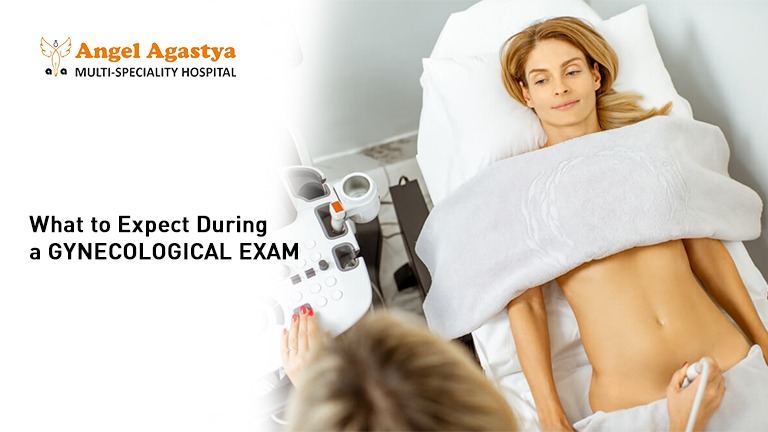
Your gynecological exam, often referred to as a well-woman exam, is a vital pillar of maintaining your reproductive health. It’s a chance to discuss any concerns you have, get screened for potential issues, and establish a comfortable, open dialogue with your healthcare provider. But for many, especially those approaching their first exam, the prospect can be daunting. Not to worry! This comprehensive guide will walk you through every step of a gynecological exam, from preparation to aftercare, empowering you to feel confident and informed.
Before the Exam: Setting the Stage for Success
Scheduling: Ideally, schedule your exam midway through your menstrual cycle, when you’re not experiencing any bleeding. This allows for a more thorough examination and avoids potential interference from period symptoms.
Preparing Questions: This is your opportunity to voice any concerns, big or small.
Don’t hesitate to write down a list beforehand. Here are some examples to get you started:
- Birth control options and their side effects
- Menstrual irregularities, such as cramps, heavy bleeding, or skipped periods
- Sexual health concerns, including discharge, pain during intercourse, or sexually transmitted infections (STIs)
- Family history of gynecological conditions (e.g., ovarian cancer)
- Questions about pregnancy or preconception planning
Gathering Medical History: If you have any past medical records or are currently taking medications, bringing them along will provide valuable context for your doctor.
Choosing Your Gynecologist: Finding a healthcare provider you feel comfortable and confident with is crucial. Consider factors like:

- Experience: Opt for a doctor with expertise in women’s health and gynecology.
- Gender preference: If you have a specific gender preference for your doctor, communicate this during your search.
- Location: Choose a doctor conveniently located within your area.
- Insurance coverage: Ensure your chosen gynecologist accepts your insurance to avoid unexpected billing surprises.
During the Exam: A Step-by-Step Breakdown
The Consultation: The doctor will likely begin by asking detailed questions about your medical history, family history, sexual activity, and menstrual cycle. Be open and honest – this information is crucial for them to tailor your care plan effectively.

The Physical Exam: This typically involves two key parts:
- Breast Exam: The doctor will visually examine your breasts for any lumps, changes in size or shape, or nipple discharge. You may also be instructed on how to perform self-breast exams at home to continue monitoring your breast health.
- Pelvic Exam: This part focuses on your reproductive organs. You will be positioned comfortably on an exam table, and the doctor will likely perform the following:
- External Exam: They will visually examine your vulva and vagina for any abnormalities, such as irritation, discoloration, or unusual growths.
- Speculum Exam: A lubricated speculum is gently inserted to widen the vaginal opening. This allows the doctor to view your cervix, the opening to the uterus. During this time, a Pap test might be performed to screen for cervical cancer.
- Bimanual Exam: The doctor will insert gloved fingers into your vagina while applying gentle pressure on your lower abdomen with the other hand. This helps them assess the size, shape, and position of your uterus and ovaries.
It’s Important to Remember:

- Comfort is Key: Don’t hesitate to speak up if you’re feeling pain or discomfort during any part of the exam. The doctor can adjust their approach to ensure a more comfortable experience.
- The Chaperone Option: If having a chaperone (usually a nurse) present would make you feel more comfortable, request one at the beginning of your appointment.
- Open Communication: This is your opportunity to ask questions and voice any concerns you have. Your gynecologist is there to listen, guide, and address your needs.
After the Exam: Wrapping Up and Moving Forward
Discussing the Results: The doctor will explain the findings of the exam and address any questions you might have. This is your chance to clarify anything or discuss any new concerns that may have arisen.

Schedule Follow-Up: Depending on the results, they might recommend scheduling your next exam or specific tests based on your individual needs.
Taking Charge of Your Health:

- Self-Breast Exams: Regular self-breast exams are a great way to stay proactive about your health. Ask your doctor to demonstrate the proper technique during your exam.
- Maintaining Healthy Habits: Eating a balanced diet, exercising regularly, and getting adequate sleep all contribute significantly to your overall well-being, including your reproductive health.
- Open Communication with Your Doctor: Don’t wait until your next exam to bring up any new concerns or changes your experience. Schedule an appointment with your doctor if you notice any of the following:
- Changes in your menstrual cycle, such as significant variations in bleeding patterns, prolonged or heavy periods, or unusual pain.
- Vaginal discharge that is discolored, has a foul odor, or is accompanied by itching or burning.
- Pain during intercourse.
- Pelvic pain unrelated to your menstrual cycle.
- Unusual lumps or changes in the appearance of your vulva or vagina.
- Difficulty getting pregnant (if that is a current goal).
Beyond the Exam: Addressing Common Concerns
Pain During the Exam: While some discomfort is common during a pelvic exam, it shouldn’t be excruciating. If you experience significant pain, let your doctor know immediately. They can adjust their technique or use smaller instruments to minimize discomfort.
Abnormal Pap Smear: An abnormal Pap smear result doesn’t necessarily indicate cancer. It may simply suggest the presence of precancerous cells that can be treated effectively with early detection. Your doctor will discuss the next steps based on the specific results of your Pap test.
Fear and Anxiety: It’s completely normal to feel nervous or apprehensive before a gynecological exam. Here are some tips to manage those feelings:
- Talk to Your Doctor: Let them know if you’re feeling anxious. They can offer reassurance and explain the exam process in detail to ease your worries.
- Bring a Support Person: Having a trusted friend or family member accompany you to the appointment can provide emotional support and help you feel more comfortable.
- Practice Relaxation Techniques: Deep breathing exercises or meditation can help manage anxiety before and during the exam.
Remember: A gynecological exam is a crucial part of preventive healthcare for women. By approaching it with knowledge and open communication with your doctor, you can ensure a smooth and informative experience. This exam empowers you to take charge of your reproductive health and build a strong foundation for your overall well-being.
Additional Resources:
Planned Parenthood: https://www.plannedparenthood.org/get-care/our-services/wellness-preventive-care
Office on Women’s Health: https://www.womenshealth.gov/
American Congress of Obstetricians and Gynecologists: https://www.acog.org/
Demystifying Your Gynecological Exam: A Quick Guide
Your gynecological exam, also known as a well-woman exam, is a cornerstone of maintaining excellent reproductive health. It’s a chance to discuss concerns, get screened for potential issues, and build a trusting relationship with your doctor. But for many, especially those approaching their first exam, it can be intimidating.
This guide empowers you with knowledge! We’ll break down the exam step-by-step, from scheduling and preparation to the exam itself and aftercare.
Before the Exam:
- Schedule strategically: Aim for mid-cycle to avoid period interference.
- Prepare questions: Write down your concerns about birth control, menstrual irregularities, sexual health, or family history.
- Gather medical history: Bring past records or medication lists for context.
During the Exam:
- Consultation: Discuss your medical history, family history, and menstrual cycle openly.
- Physical exam: This typically involves a breast exam and a pelvic exam with a speculum and bimanual exam.
- Remember: Your comfort matters. Speak up if you experience pain, and don’t hesitate to request a chaperone for additional support.
After the Exam:
- Discuss results: Your doctor will explain the findings and address any questions.
- Schedule follow-up: Depending on the results, they may recommend scheduling your next exam or specific tests.
Taking Charge:
- Self-breast exams: Learn how to perform regular self-breast exams at home.
- Healthy habits: Maintain a balanced diet, exercise regularly, and prioritize sleep for overall well-being.
- Open communication: Don’t wait until your next exam – address any new concerns with your doctor promptly.
Feeling Nervous? It’s common! Talk to your doctor about your anxiety, bring a support person, or practice relaxation techniques beforehand.
By approaching your gynecological exam with knowledge and open communication, you can ensure a smooth and informative experience. This exam is a powerful tool to take charge of your reproductive health and build a foundation for lifelong well-being.
FAQs about Gynecological Exams:
- What age should I start getting gynecological exams?
The American Congress of Obstetricians and Gynecologists (ACOG) recommends starting at age 21, or earlier if you’re sexually active. - How often should I have a gynecological exam?
Generally, yearly exams are recommended. However, your doctor might suggest more frequent visits based on your individual health needs. - What should I wear to a gynecological exam?
Loose-fitting clothing that’s easy to remove from the waist down is ideal. - Do I need to empty my bladder before the exam?
While not mandatory, emptying your bladder beforehand can make the exam more comfortable. - What happens during a pelvic exam?
A pelvic exam typically involves a visual inspection of the vulva, a speculum exam to view the cervix, and a bimanual exam to assess the uterus and ovaries. - Does a Pap test hurt?
Most women experience minimal discomfort during a Pap test. If you have any concerns, speak to your doctor about ways to minimize discomfort. - What should I do if I’m feeling nervous about the exam?
Talk to your doctor! They can explain the process in detail and address any anxieties you might have. - Is it okay to bring a friend or family member to the exam?
Absolutely! Having a support person present can make you feel more comfortable. - What happens if my Pap smear results are abnormal?
An abnormal Pap smear doesn’t necessarily indicate cancer. Your doctor will discuss next steps based on the specific results. - How can I maintain good reproductive health between exams?
Practice self-breast exams, maintain a healthy lifestyle, and communicate openly with your doctor about any changes or concerns.
